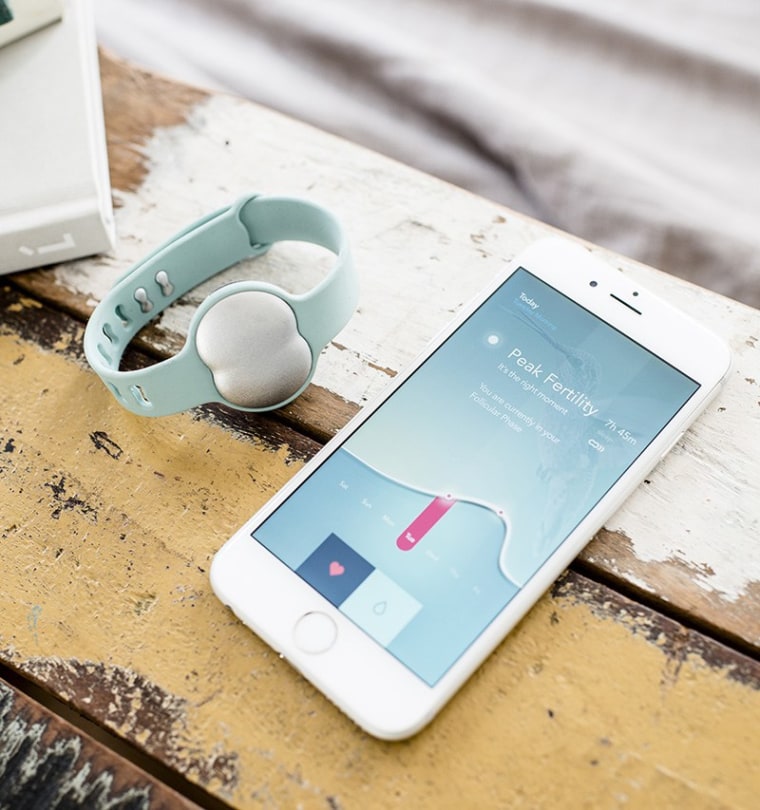More women than ever are delaying having their first child, with 20 percent of women in the United States having their first after age 35, according to the Centers for Disease Control. And, of those couples having children later, about one third have fertility problems.
So, with little time to waste, many women and their partners are turning to tech for help.
A new smartband called Ava, now FDA regulated and available to purchase online, is worn only at night, and then synced to the wearer’s smartphone in the morning. The band tracks nine physiological factors, including pulse rate and body temperature, to determine a woman’s fertile days.
Ava founder Lea von Bidder says high tech for fertility is “long overdue.” In an interview with NBC's Jo Ling Kent, von Bidder made the case for wearables as the future for fertility tracking. “You can call a cab whenever you want, and you can track your steps,” said von Bidder. "But we really want to apply all this in a meaningful area, and women’s health really is a meaningful area."
In a recent clinical study led by the University Hospital Zurich and Dr. Brigitte Leeners, doctors monitored 41 women who wore the Ava bracelet as they slept, and said they were able to identify a woman’s fertile window with an 89 percent accuracy.
The device, which sells for $199, has proven so popular that it is already on back-order. Hopeful mother-to-be Lauren Llama, 34, is one of the early users of the wearable bracelet. “I think kind of understanding your body is really beneficial in this process,” said Llama in an interview. “I wanted to be a little more aggressive about it."
She and her husband Andrew were married earlier this year, and are eager to start a family. “When we have a baby boy, we’ll have to learn how to play catch with him,” said Andrew, tossing a tennis ball with their dog Guapo.
There are other popular apps like Glow, Ovia, and Clue that can help track ovulation with the ease of a smartphone app. And, a new product called Knowhen — online now and hitting store shelves in the spring —offers an at-home saliva test to determine a woman’s five most fertile days each month.
Dr. Rebecca Flyckt of the Cleveland Clinic says the Ava device “shows a lot of promise,” but that she will be monitoring further study since it is so new. Flyckt, who is not affiliated with Ava, noted, “I think what’s interesting about Ava is it will monitor non-invasively as a woman is sleeping overnight, to detect her fertile window and help her in her attempts to conceive… but compared to other apps or for women who are using urinary ovulation predictor kits, it may not necessarily contribute to an advantage aside from the fact that it’s non-invasive."
Related: Motherhood Penalty Can Affect Women Who Never Even Have a Child
In an age of high tech, some worry that bringing wearables and apps to the bedroom could be a spontaneity killer and put more pressure on couples. But that’s not been the experience for the Llamas.
“Whether you’re using technology or not, I think the stress and the anxiety is already there,” said Lauren Llama. “Whether you want to empower yourself with knowledge of your body is your individual choice. For me, I want to know."

